Battles of history with Patrick Goodwin
Second battle of Sabo 199 BC
Goodwin: The second Punic war is shaking the Mediterranean Sea in 200 BC. Like the first Punic war, the second started because of trivial causes and turned out to be a terrible war for both the Carthaginians and the Romans. The war started in 220 BC when Carthaginian ships raided a Greek colony in Spain that was allied with Rome. Trivial the cause may be, but the conflict roots back deep to the old rivalry for the Mediterranean Sea between the two forces.
By 200 BC, 20 years after the war started, hardly any progress was made on either side. Most fighting took place in Spain with high causalities on both sides. In 200 BC an elder senator by the name of Appius Aurelius Cotta remembered that his father, Caius Aurelius Cotta, ended the first war with Carthage by attacking the the helpless city itself. Appius Aurelius Cotta planed to live up to his fathers’ reputation and win the second Punic war by defeating the Carthaginians in Africa. In 199 BC he landed with a huge force of 3 legions, facing a strong enemy. In the first battle of Sabo he defeated the Carthaginian militia who were trying to win time for the arrival of Carthage best general coming from Egypt: Carthalo
[The scene is a larger army force marching by foot and horses in a wide column. Carthalo is sitting on his horse; his face is unwashed and dirty because of the marching. Next to him are three of his military advisors; he is delivering a long monolog to them.]
Carthalo [speaking calmly]: Milkherems attack on Cotta was not successful, but they probably bought us enough time to reach Cotta before he can advance on our city and mother. I have been thinking about the Romans a lot. These men from Italy are well trained and disciplined. Breaking their back won’t be easy. Hence I have been pondering how to defeat the Romans. 50 years ago there was a terrible battle that we fought against these men at a place called Mazana. There the great Carthaginian leader Hamalcar nearly defeated the Romans. How did he do that? He outflanked their flanking force, pushing mainly through the right side. This is a risking manoeuvre, but if we can hold our Phalanx against their line of infantry, our cavalry might defeat their mounted troops for good. I believe that is the key for victory.
[The scene moves away from Carthalo, fading to a view of the whole army marching to the north. Over 30.000 troops can be seen marching and producing a huge cloud of dust.]
Goodwin: The second battle of Sabo was located at the small hill of Sabo where Cotta placed his troops. On the 5th of June Carthalo reached the Roman encampment and both sides prepared for battle.
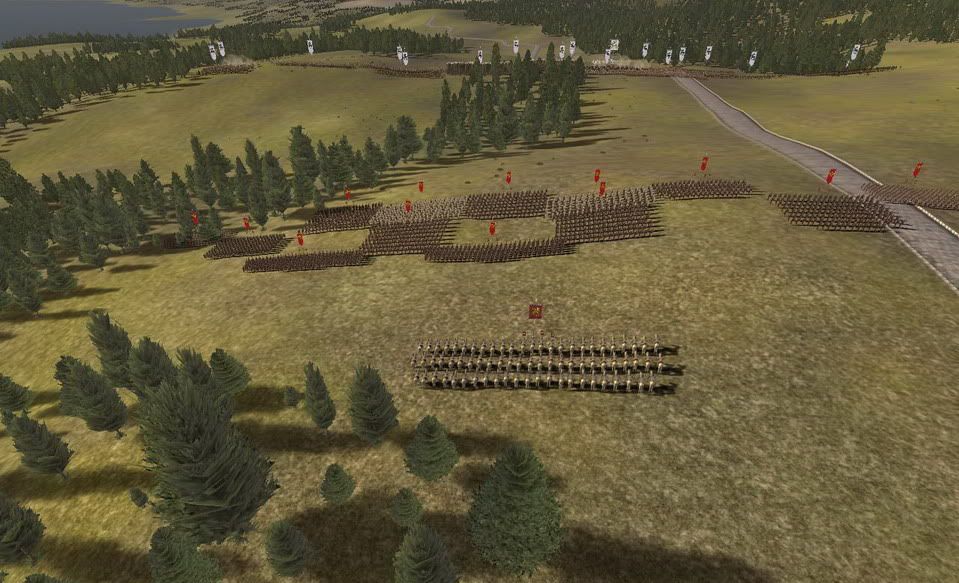
Cotta placed his cavalry for flanking duty on the left and right side of his army, while Carthalo placed his cavalry on the entire left flank to break through at that specific point
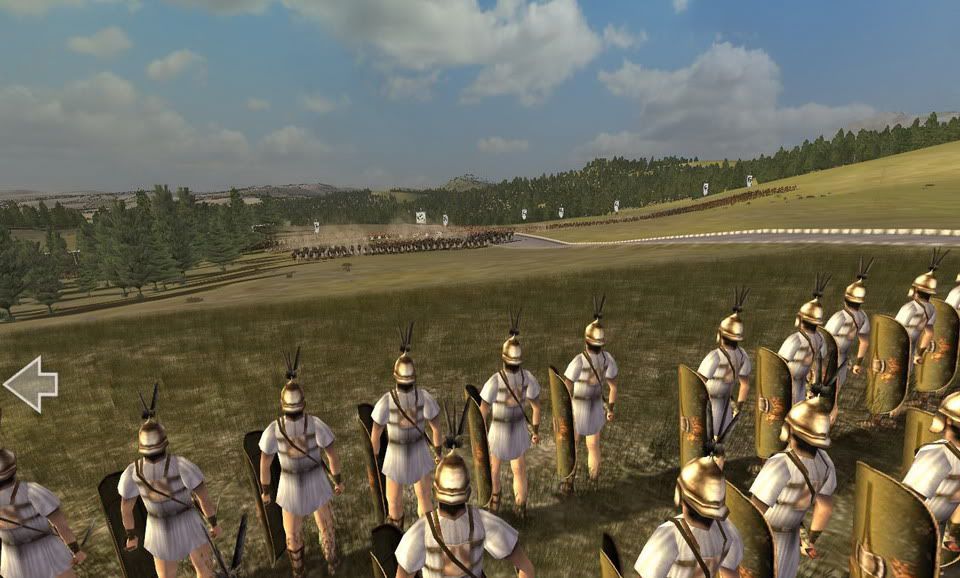
The Romans wait for Carthalo to make the first move.
Roman Soldier: This one is going to be the big one. This battle might decide everything. Mars be with us.
Other roman soldier: Mars be with us.
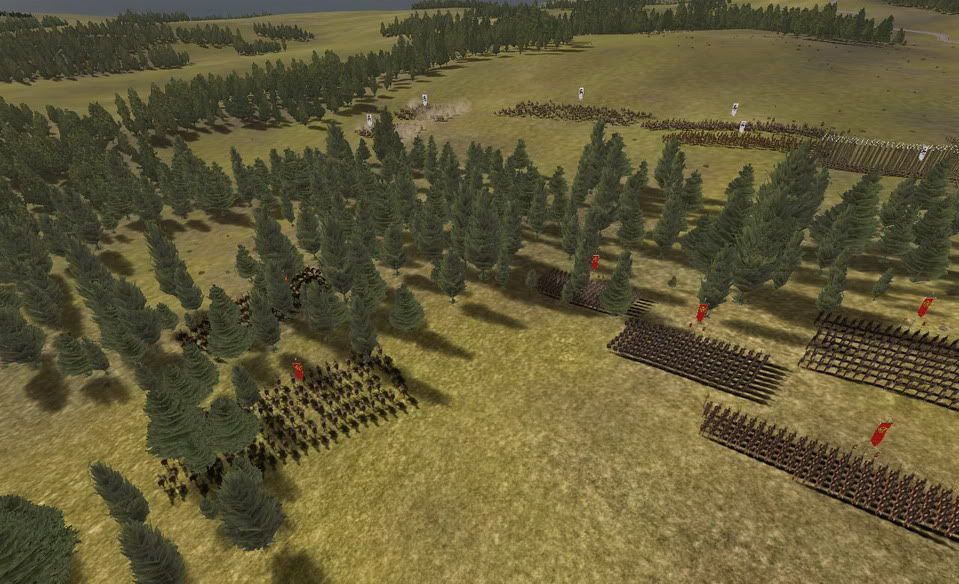
Carthalo moves his cavalry; Cotta reacts quickly throwing his reserve to the left flank. Meanwhile the Roman leader gives the sign to charge.
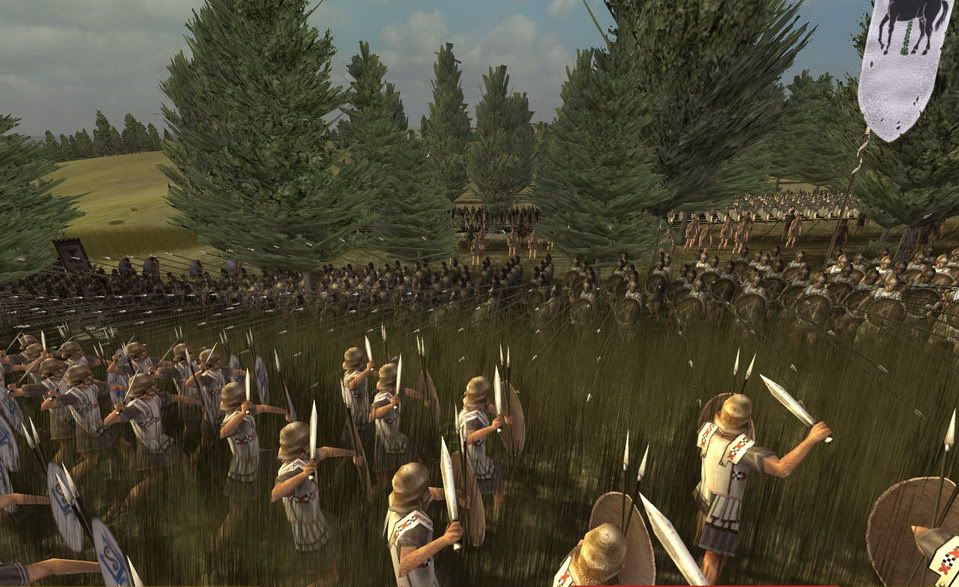
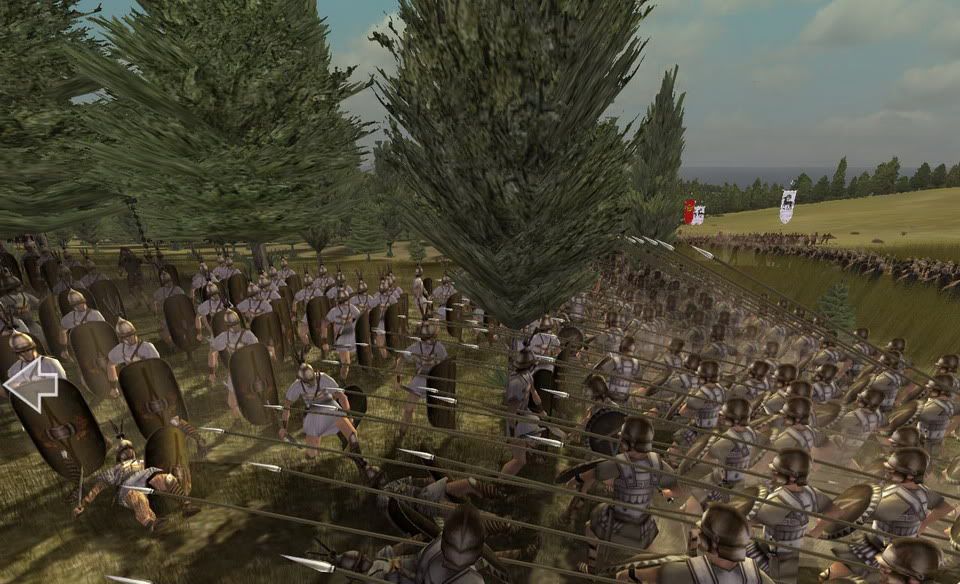
Charging against a phalanx is a deadly endeavour, but in this case it seems to be necessary to keep the enemy at bay while the cavalry wins the flanks.
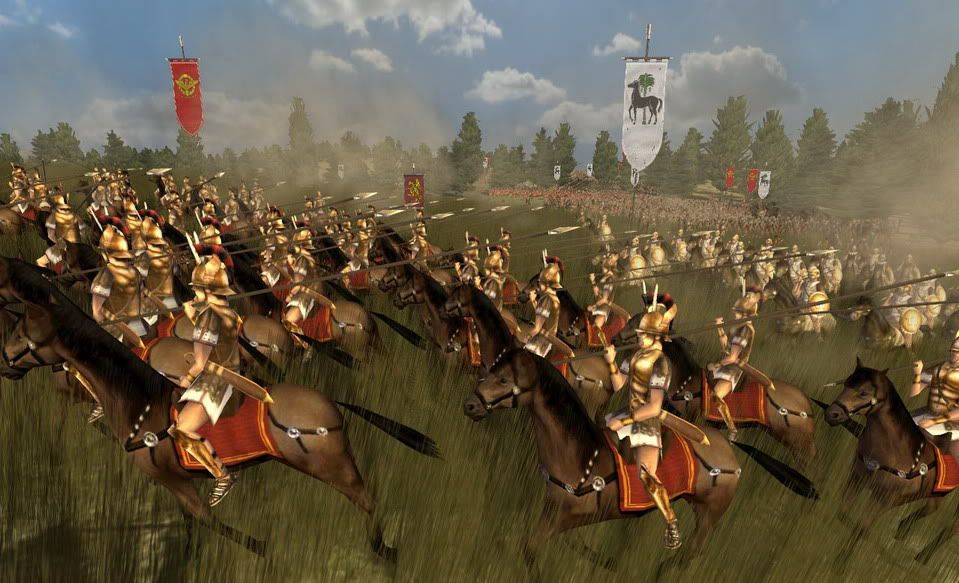
All eyes lie on the left flank where heavy mounted troops from the Italian region Campania battle Carthaginian mercenaries.
Campanian rider to the military messenger: Too many of them, they are to fast. Send note to Cotta: “Cavalry is overwhelming us – Carthalo himself moving to the left flank as well – we need the Triarii to cover the left flank.”
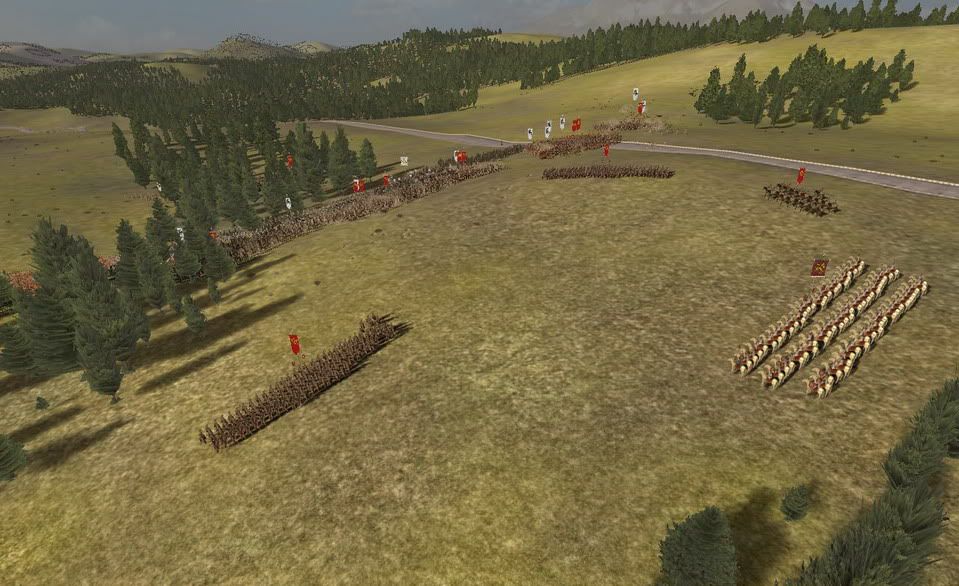
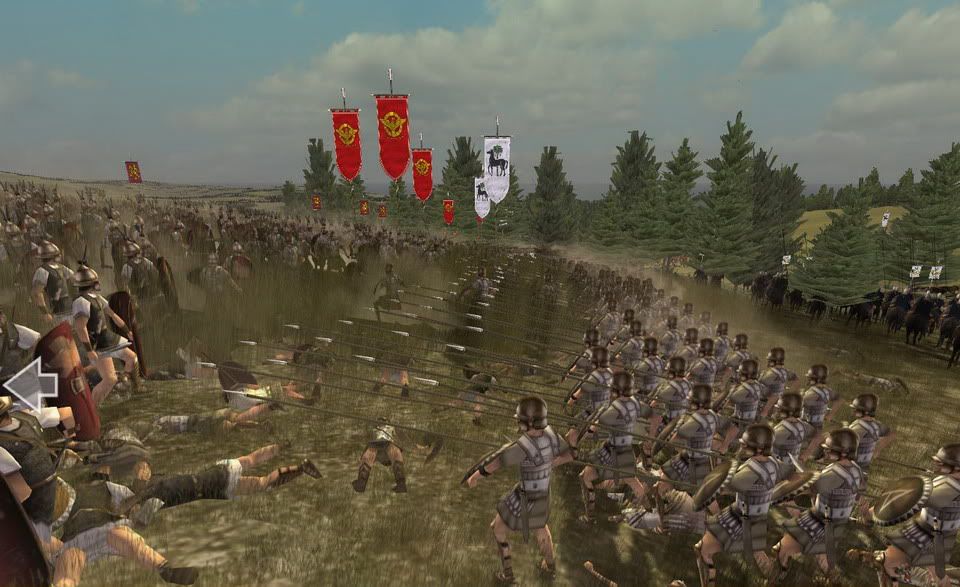
While the cavalry was fighting on the left flank, Roman infantry was taking heavy casualties in the centre. It was clear that Cotta would loose the battle if the left flank would break away.
The messenger reached Cotta, but it was too late. Carthalo himself positioned him on the left flank, ready to attack the Roman force there. Both sides where ready to charge.
Campanian rider: Alright men. We don’t have enough time to talk this trough. But if we win this one, we can all go home to Rome. Trumpeter, give the sign to charge. The man who kills Carthalo will enter Rome as a rich man.
The battle on the left flank is about to be decided. Both sides charge.
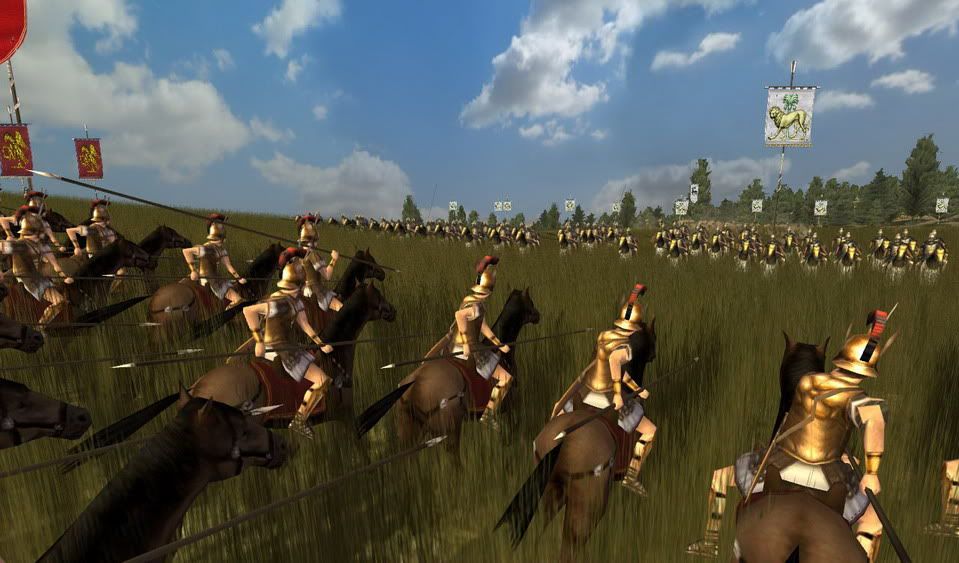
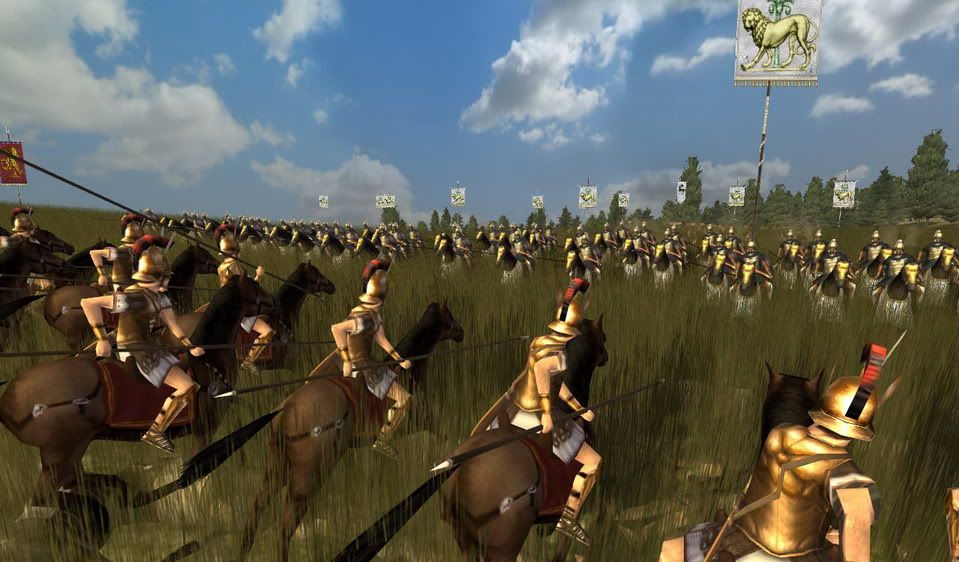
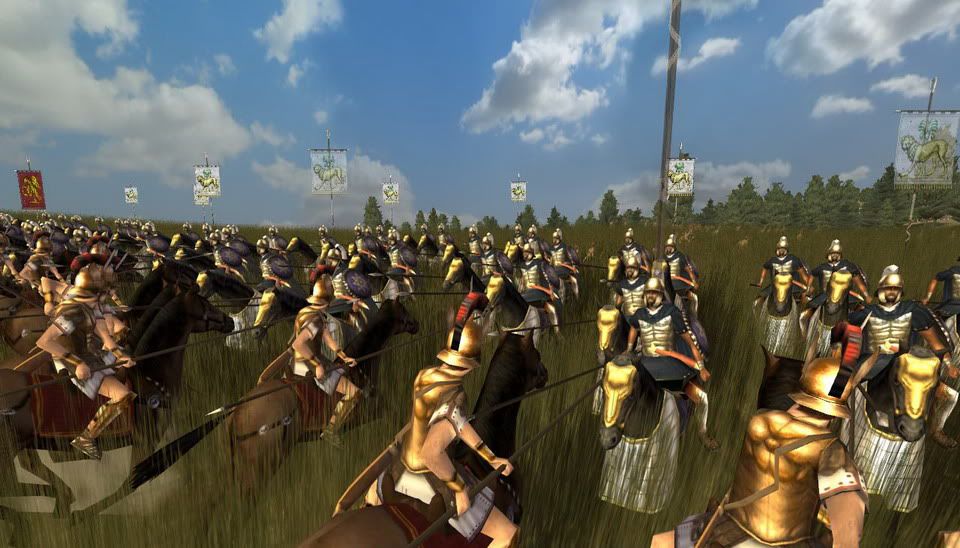
The impact was terrible. Within minutes people get pierced by lances, fall of their horses and get trampled to death. War in antiquity is no less brutal then today.
Carthalo screaming in battle: Get those Roman pigs. Slay them all! For our city and mother.
Carthalos men cause heavy losses on the campanian cavalry. The Roman left flank is breaking away.
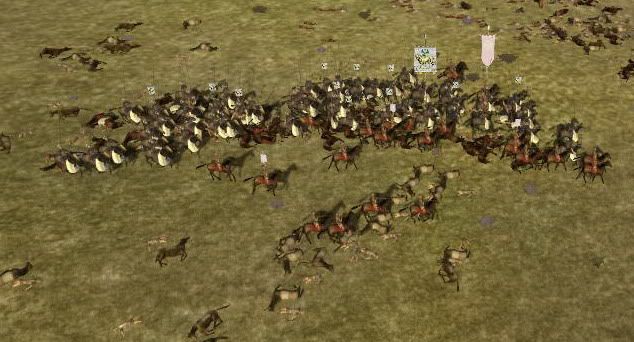
The result of this is devastating; the Roman left flank is getting hammered by heavy Carthaginian troops.
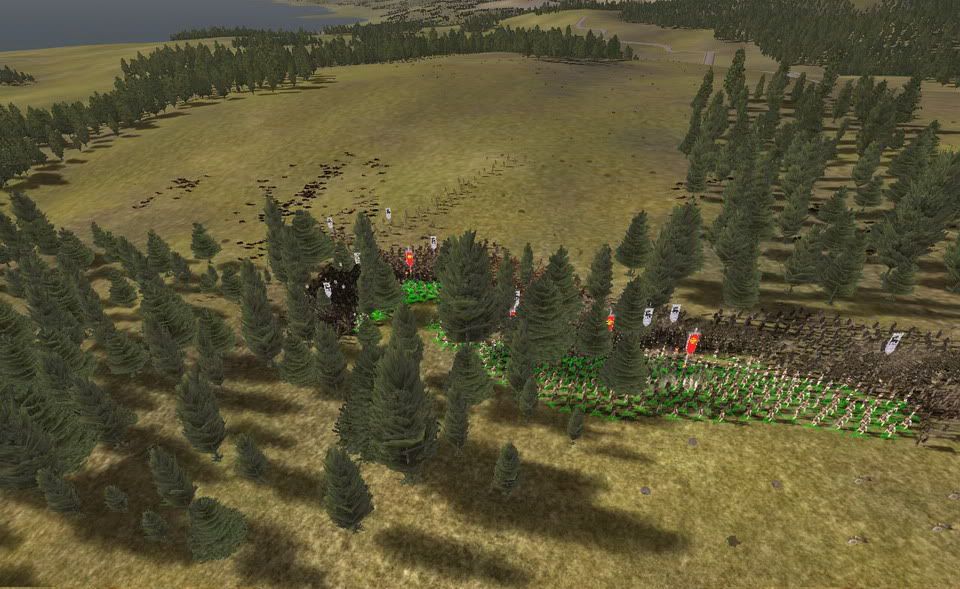
Cotta: This is not going well. Fortuna! Fortuna! Why? My name is in shame.
The tide is turning in favour of the Carthaginians. But Cotta remembers the old Roman tradition of devotion where a military commander would deliberately make a suicidal charge against the enemy to inspire the troops and restore the family name.
Cotta: The old roman man is about to die. The old roman spirit is about to live. For Rome! For Victory!
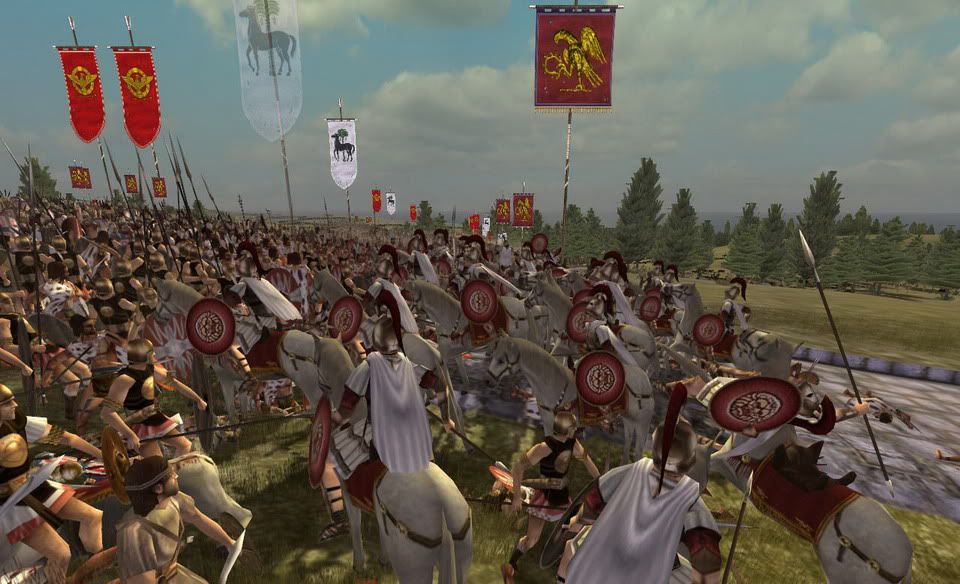
Cotta charges against the right flank, hoping to cause panic at the weaker side of the Carthaginians.
The number of his guards dwindled until he is all alone by himself.
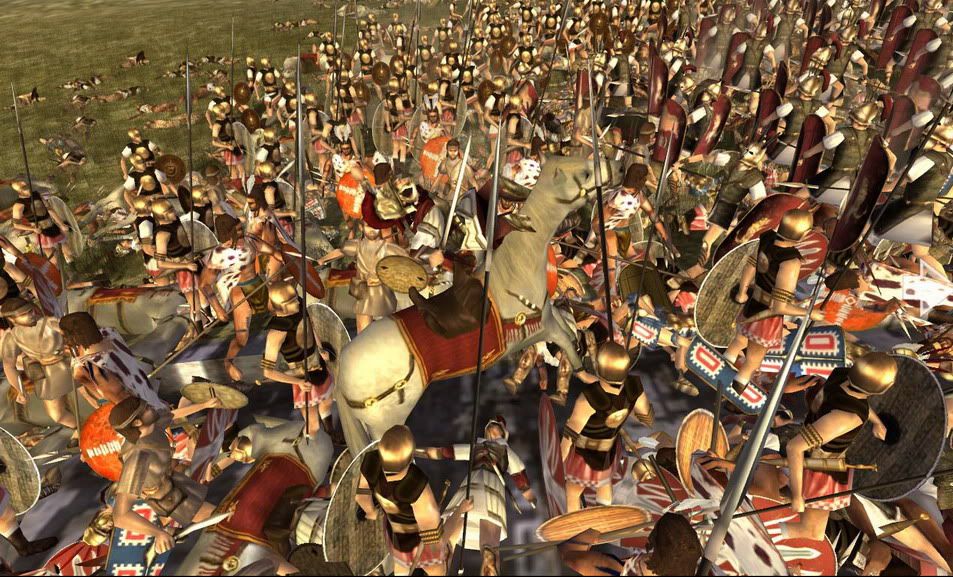
He gets dragged of his horse and beaten to death on the battle field.
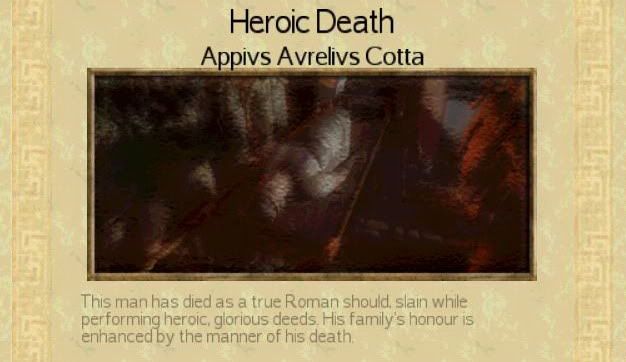
The Roman spirit is ignited once again. All troops charge and press against the overwhelming enemy. But is that enough to win the battle?
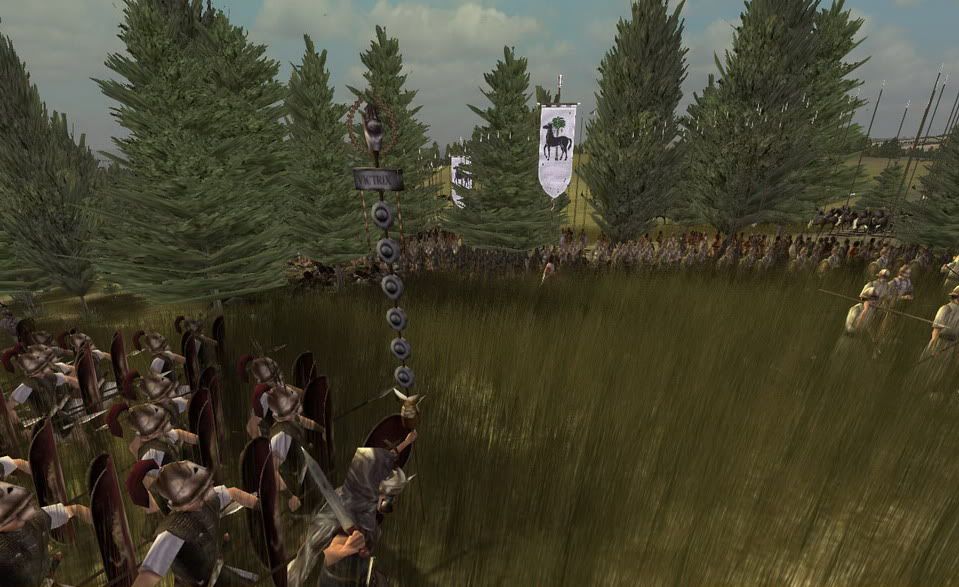
Meanwhile Roman cavalry rides to the right flank to retrieve Cottas body. Seeing that they are loosing the battle, they would not let Carthalo get the trophy of Cottas body.
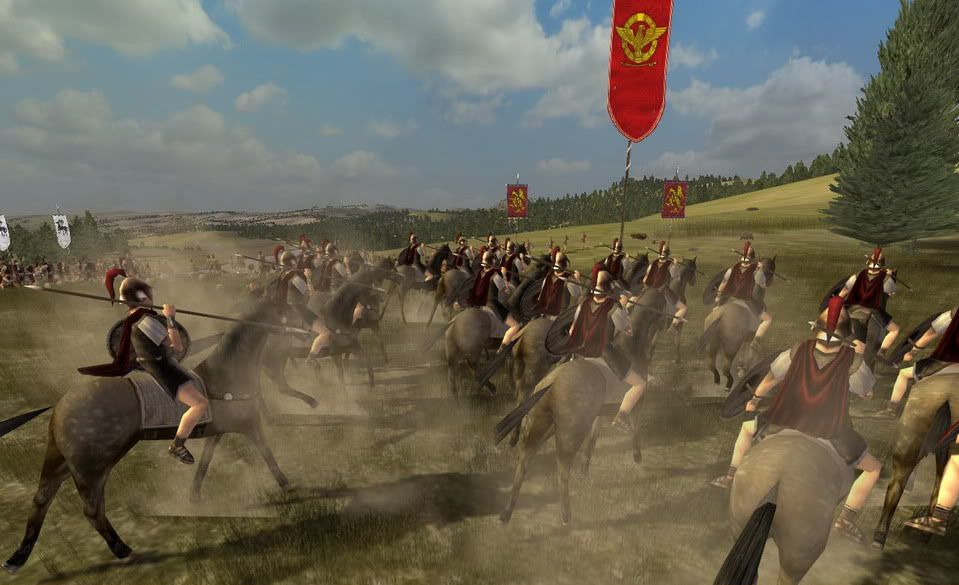
Cottas devotion inspired the troops to fight like mad men and although they are able to inflict heavy causalities on the enemy, in doing so the Roman number of troops also grows dangerously thin.
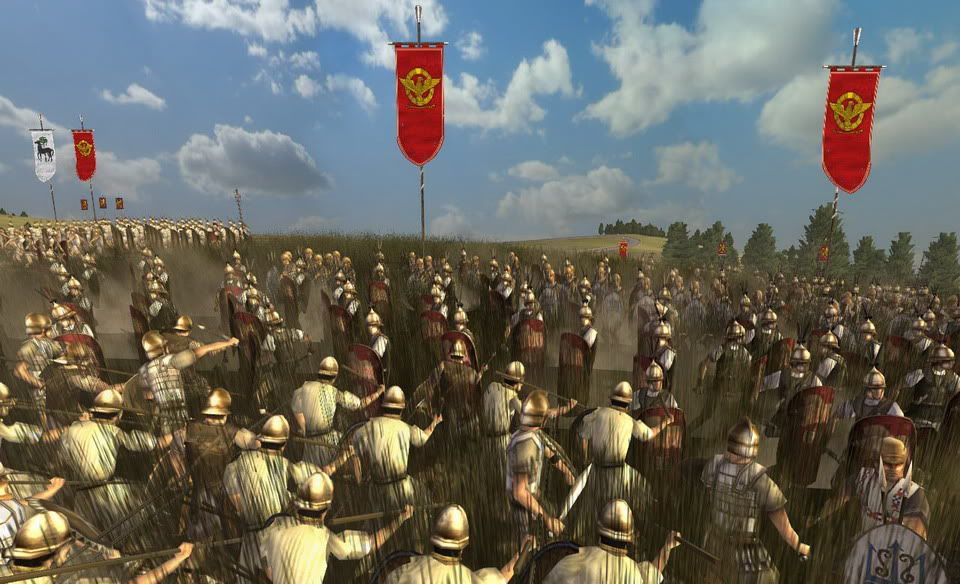
Roman rider: There is his. Get his body and then let’s get out of this hell.
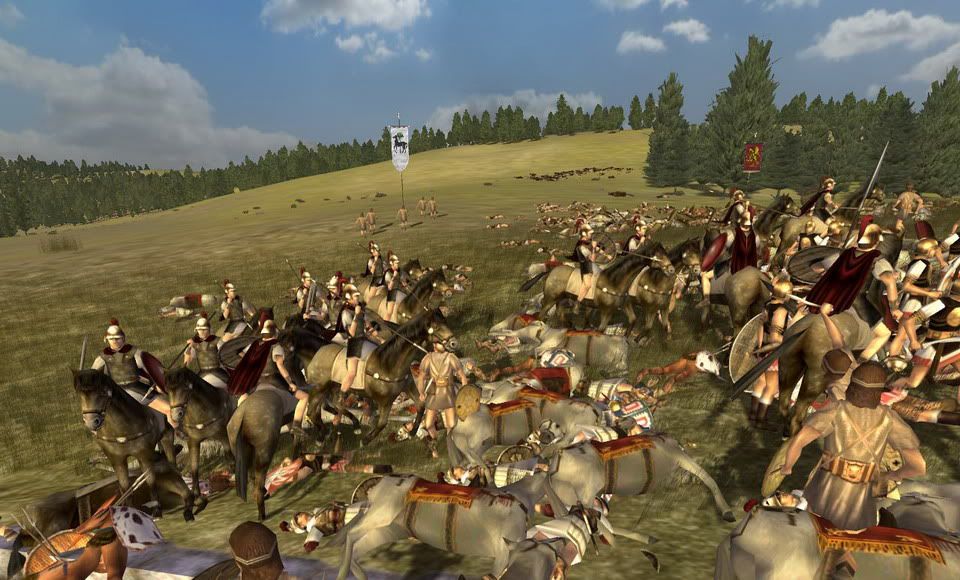
The Roman cavalry is able to retrieve Cottas body, but while returning to their post the moral of the Romans is breaking. After two hours of fighting they are exhausted and weakened. They retreat – they run like hell.
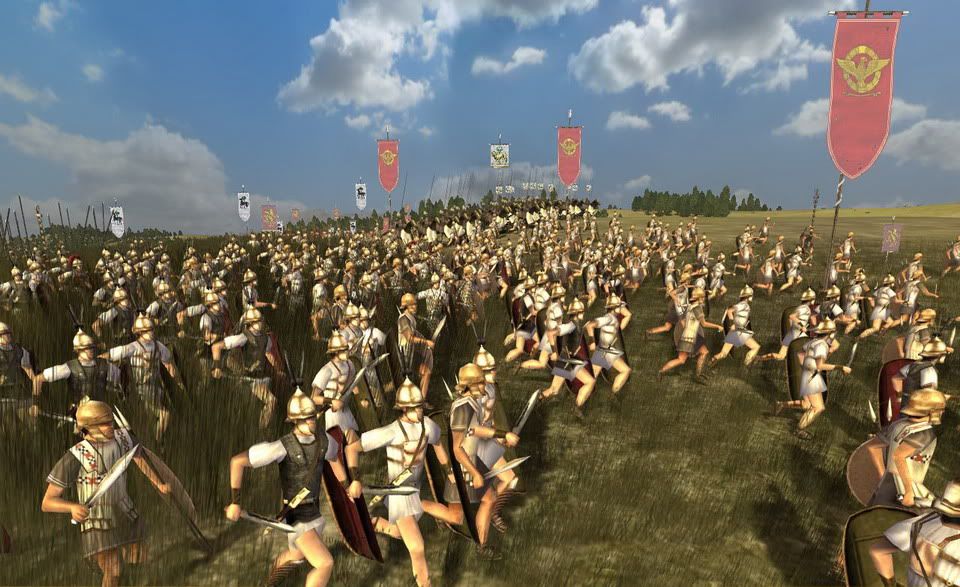
The whole roman army is fleeing, the battle is finally decided. Carthalo has won.
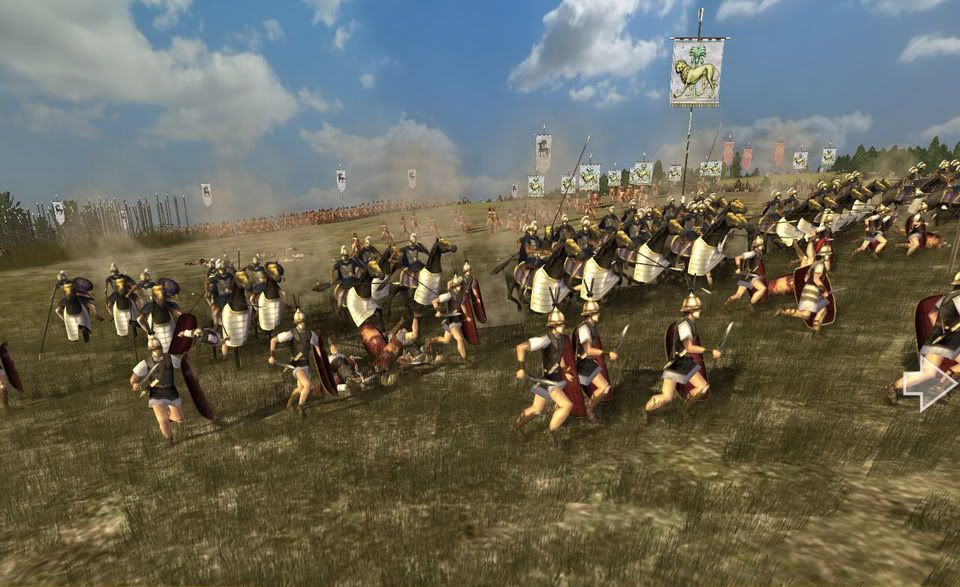
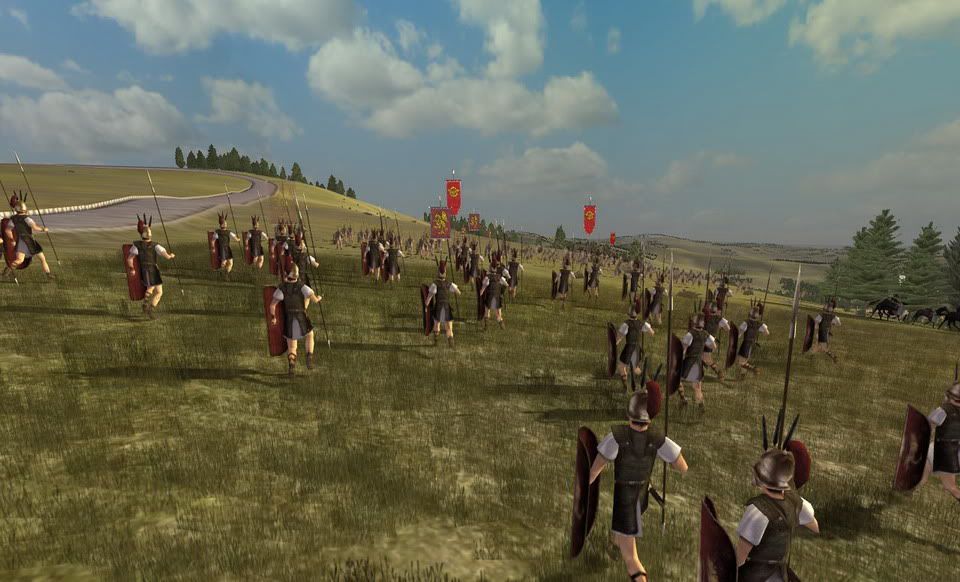
Kennard [sitting in his office]: Even though the Romans inflicted heavy casualties on their most hated enemy the second battle of Sabo was a complete defeat for the Rome. They did not achieve anything, the invasion was a failure, a consul was dead and a good deal of the 5.000 Roman survivors were captured and killed during the march towards the sea. Three legions plus auxiliary was lost. It was only a close victory for Carthage, but it was a total loss for Rome.
Rome had suffered a terrible defeat. But Carthage had only won a battle, not the war. This defeat gave younger and unknown people like Sulla the chance to prove their worth. And indeed, the ancient historian Fabius tells us, that Sulla shouted “By the gods! What a terrible defeat – we can finally win this war” when he heard about the outcome at Sabo, pointing out that his plan for defeating Carthage in Spain might work out after all.
Second battle of Sabo:Romans:
Soldiers: 24.000 - Lost: 19.000
Carthaginians:
Soldiers: 33.000 - Lost: 22.000





























 Reply With Quote
Reply With Quote
Bookmarks